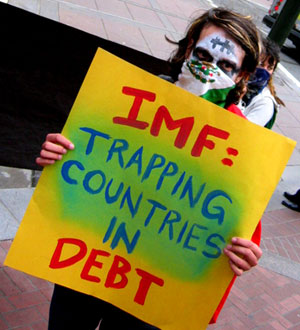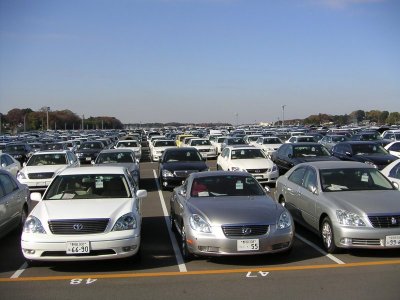Although am writing this piece of paper in a layman’s perspective, but am very certain that I can contribute something. Yes, I ‘am not an economist by profession but with handful knowledge on economy acquired from the subject of political economy, I think I can help my fellow local Malawians to see where our economy is heading to.
The name IMF is very common in our country these days. People sometimes mention it without even knowing its connotation, and what are its lending policies? Every day we read in papers or hear from the mouth of our political leaders especially those on driving seat that Malawi has received such amount of Million dollars from IMF, or IMF has approved US$19.6m funding to Malawi etc.
My question is, do local Malawians really understand what it means? In a layman’s viewpoint, I argue that these millions are not Butter and Bread for Malawians. Meaning to say the government of Malawi will pay back these loans sooner or later with huge interests. Malawians should understand that every single tambala borrowed by their government is going to be repaid back to the lender twice as much.
Nevertheless, getting loan is not a crime; but is it wise for someone to live his entire life in debts? getting the loan after the other.
It is noteworthy topoint out here that the problem that our politicians have in this country is that they publicly announce the amount of the loans they gate from these lending institutions, but in follow up they don’t tell the nation how much the government will pay back and for how long, and most sadly they don’t even tell the nation what are the projects the money will be used for?
Conditions and consequences
Certainly, we should know that IMF loans are tied up with bitter conditions. No borrower can have access to get loan from IMF or World Bank without being forced to swallow a bitter economic pill such as SAP. Structural Adjustment Policies are economic policies which countries must adopt in order to qualify for World Bank and IMF loans and help them make debt repayments on the older debts owed to commercial banks and western governments.
SAPs basically require countries to devalue their currencies against the US dollar, lift import and export restrictions, balance their national budgets and not overspend, and remove price controls and state subsidies.
Devaluation thus makes countries goods cheaper for foreigners to buy and theoretically makes foreign imports more expensive. The immediate effect of devaluation and removing price controls is the hike price of commodities up to three or four times, and increasing poverty to such an extent that riots are inevitable. Without mincing words, you can agree with me that Malawi is going through this process. Prices of basic commodities are swelling every day.
To accumulate enough money for repaying the loan, borrower government tries to balance the budget which is mostly done by raising taxes, or by cutting government expenditure which certainly IMF recommend.
In Malawi’s case, it can be argued that the huge sum of money accumulated from these cuttings does not benefit the people but rather few individuals who share it to satisfy their narrow personal interests. Perhaps this is why we find a good number of our politicians started politics while they were poor but just upon being elected as president, MP and or Cabinet Minister they become affluent just over night.
IMF funds result often to serious cuts in programs such as education, health and social care, and the removal of subsidies designed to control the price of daily basics necessities’ such as food. This policy and or conditions severely hurt the poor masses because they wholly depend on these services and subsidies offered by their government.
Not only that, also Structural Adjustment Programs brings about downsizing bureaucrats, privatization and even imposing other immoral practices directly or indirectly i.e. encouraging homosexuality etc.
Advice
My fellow Malawians, don’t think that these huge amount of loans your government is gating from IMF and other institutions will bail-out Malawi from poverty, but rather aggrandizing the poverty among the masses. It is very had to find just one country that has successfully developed its economy with IMF loans. Many economies in Latin America, Africa and Asia collapsed in 1980s due to SAPs and conditions imposed by the IMF upon them. Mexico and Thailand are salient examples in this case. Loans which countries took to recover their economies led to debit crisis i.e. Latin America financial crisis. They only managed to get back on their feet when they review their borrowing policies.
My fellow Malawians, if we keep on poking our nose in the pocket of these Bretton Woods institutions believe me we are going nowhere with our economy because we are working for them not for our nation’s prosperity.
Consequently, it is wise for Malawi leadership to learn from other countries that have experienced economic crisis like Malaysia, which is now moving to be a developing country in few years coming due to its economic growth. Malaysia achieved this feat when the then Prime Minister Dr. Mahathir introduced “Look East Policy” and ‘Buy British last’ policies in 1981/1982.
These policies were aimed at directing the Malaysian government towards studying, researching and subsequently choosing policies and implementation examples from Japan and South Korea with the intention of localizing such initiatives to suit the Malaysian situation. Despite the Asian financial crisis, which also hit Malaysia, Malaysia refused to get IMF or World Bank help because it believed that the so-called help would worsen the crisis, but instead, Malaysia imposed currency control which helped it to recover its economy.
Perhaps our leadership can have one or two lessons from Mahathir’s wise remarks “We will buy British when it is absolutely necessary, when your prices and services are way ahead, but otherwise I think we will show a definite preference for non-British sources”. Meaning, he challenged the west in general that he can only turn to them when there is a positive-sum-game. In absolute terms, it can be summed up that IMF and WB plays a zero-sum-game which benefit one part only on the shoulders of the other. Malawi watch out, otherwise our nation will completely sink.
*Author of this article is a Malawian Political Scientist currently residing in Malaysia





No comments! Be the first commenter?